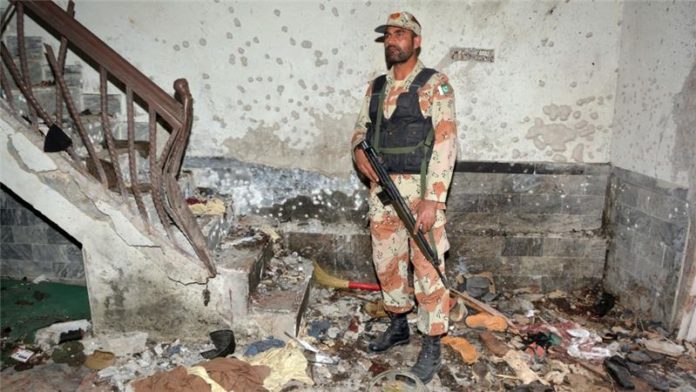
Pakistan has a number of pressing problems: poverty, American drone bombing campaigns that have continued into 2015 (just because they don’t report it in the mainstream media, does not mean they do not occur), a rivalry with India, intermittent electricity interruptions and corruption, to name just a few.
Sectarian violence is perhaps one the greatest of its problems, and it is on the rise. The country is divided between the Sunni Deobandi and Shiite Muslims; according to the Middle East Institute, some 2300 people have died from the conflict in the country’s four major provinces, so far, since 2007. Furthermore, 1500 people have been killed in the tribal area of Kurram Agency.
In the past few weeks, suicide bombings have occurred at Shiite mosques, killing 80 people. The Pakistani army has attempted to fight militants, particularly following the Peshwar school attacks last year that had killed over 150 individuals, most of whom were kids.
DW had recently interviewed the Middle East ‘expert’, Arif Rafiq, who had penned the Middle East Institute report. He emphasized that the growing conflict is not quite as simple as one might expect.
It is not a Shiite vs. Sunni conflict, but is specifically between the Deobandi Sunni sub-sect that is attacking the Shiite majority. The largest Sunni sub-sect is the Barelvis and is actually keen on cooperating with the Shiites.
“And so it’s important that we identify this as not a Sunni-Shiite conflict, but a conflict between Sunni Deobandi and Shiite Muslims – with Shiite civilians bearing the brunt of the violence.
In recent weeks, Shiites have been targeted by Lashkar-e Jhangvi (LeJ), Jundullah, and a faction of the Tehreek-e Taliban Pakistan (TTP). Some of these militant groups may focus on killing Shiites, while others may focus on targeting the Pakistani state.”
‘Talibanization’ is the main reason for the conflict in the Kurram Agency, according to him; the region borders Afghanistan and the Taliban’s influence has been repelled by the Shiites. As a result, the Pakistani Taliban has decided to target them. Two primary organizations target the Shiites, the Lashkar-e Jhangvi (LeJ), Jundullah, and a faction of the Tehreek-e Taliban Pakistan (TTP). The recent spate of violence can be linked to the escape of several LeJ commanders. Commanders Usman Kurd and Dawood Badini had led a horribly vicious campaign that led to the ethnic and religious cleansing of Shiites in Balochistan, particularly the ethnic Hazaras.
The Shiites are not completely innocent, however:
“It must be noted that there are also active Shiite militant networks in Pakistan. Their violence has been reactive and largely restricted to targeting radicals and militants.
But in some instances, Shiite militant networks have gone beyond the regular tit-for-tat, engaging in violence that has exacerbated the sectarian conflict.”
The Pakistani government has been largely ineffective in dealing with this conflict, but have at least provided security for processions while arresting and killing LeJ militants. Corrupt politicians have made deals with certain groups, however:
“Politicians from most major political parties, especially the ruling Pakistan Muslim League – Nawaz Sharif’s party, are guilty of engaging in electoral deals with the ASWJ, despite the group’s public declaration that Shiite’s are infidels.
And it’s unclear whether the military regards anti-Shiite militant networks as great of a threat to Pakistan as expressly anti-state groups like the TTP. So the Pakistani state, in so much as we can regard it as a singular entity, lacks moral and strategic clarity when it comes to sectarian militancy.
Despite the good faith efforts of many elements within the Pakistani state to counter sectarian terrorists, the phenomenon will continue until the top civilian and military leadership confronts it unambiguously.“




